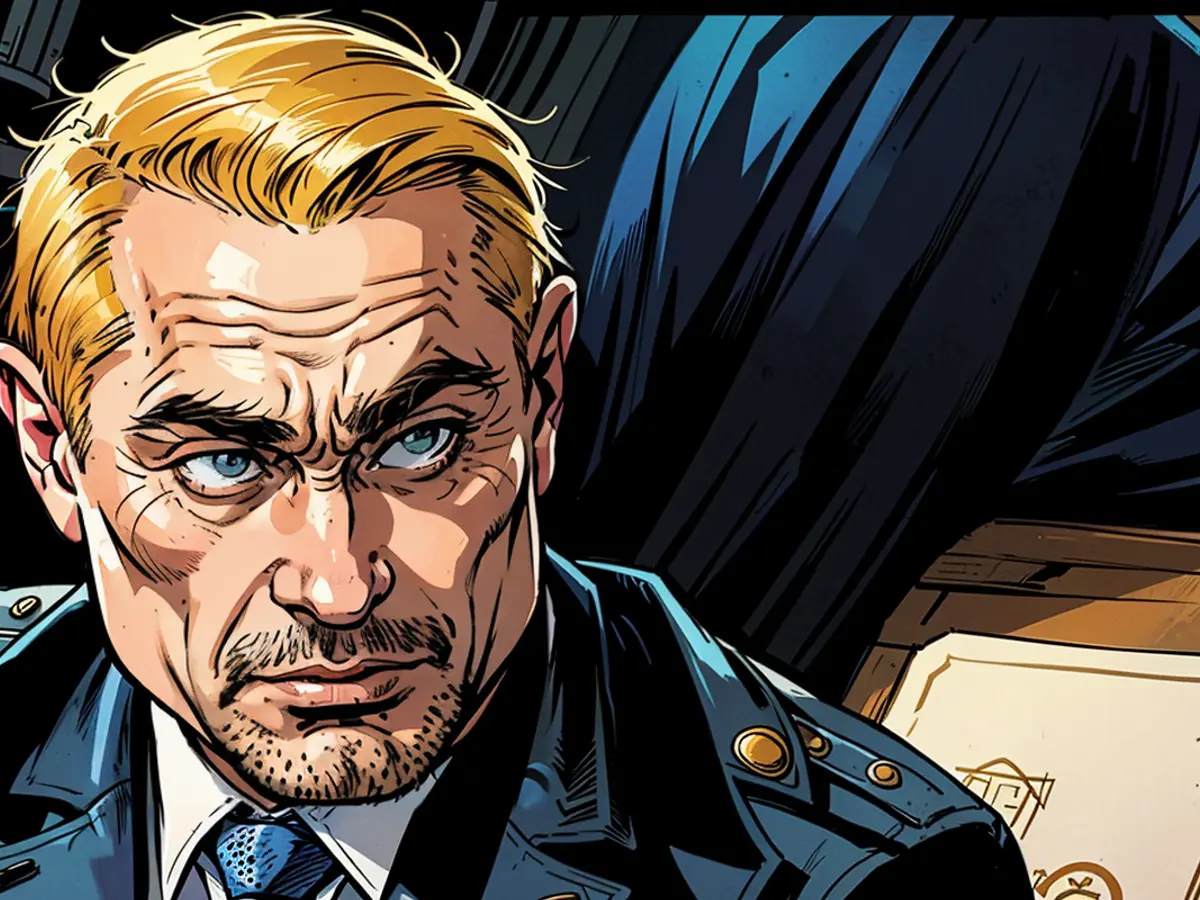Putin reiterates willingness to negotiate
Putin repeatedly shows readiness for peace talks in Russia's war against Ukraine, but always with his conditions. At a summit of several leaders in Kazakhstan, Putin made another proposal. There, the Kremlin chief explained his vision of a new world order.
Russian President Vladimir Putin emphasized Russia's readiness for peace talks regarding its aggression against Ukraine during a summit of the Shanghai Cooperation Organization (SCO) in Astana, the capital city of Kazakhstan. Putin stated that Russia had long been in favor of a political-diplomatic solution to the conflict. Moscow, which has been conducting a destructive war against Ukraine for over two years, recently made proposals for ending hostilities, Putin said.
Moscow insists that Ukraine renounces all annexed territories, which Kiev rejects. Russia is grateful to the SCO members for their proposals to resolve the conflict, Putin said. "Russia is certainly willing to consider these ideas and initiatives," he added. Simultaneously, he once again accused the US and its allies of instigating the Ukraine conflict.
Putin seeks to build a new world order in his confrontation with the West - instead of "eurocentric or euro-Atlantic models," which have led to a growing number of crises in the world. "The multipolar world has already become a reality," Putin said in his summit speech. Putin expressed confidence that the SCO and the BRICS countries (Brazil, Russia, India, China, and South Africa, among others) would be the foundations of the new world order.
Zelenskyy calls for Russian troop withdrawal
Putin had proposed a weapons truce and peace talks just before the Ukraine conference in mid-June in Switzerland. As a condition, the Kremlin leader demanded the withdrawal of Ukrainian soldiers from four regions partially occupied by Russia in the east and south of the country and Ukraine's renunciation of NATO membership. The Ukraine, the US, Germany, and NATO rejected these conditions immediately.
In response, Ukrainian President Volodymyr Zelenskyy called for a Russian troop withdrawal as a condition for peace talks. "Russia can begin negotiations with us tomorrow if it withdraws its troops from our legitimate territories," Zelenskyy said at the end of the Ukraine conference on June 16 in Switzerland before journalists. He added, "Russia and its leadership are not ready for a just peace." These demands were an ultimatum, according to Zelenskyy the previous day. "Hitler did the same thing when he said 'Give me a part of Czechoslovakia and we'll end it all,' but no, that's a lie."
Therefore, the Kremlin called on the leadership in Kiev to reconsider withdrawing troops from the east and south of Ukraine to clear the way for peace talks. "The current development of the situation at the front clearly shows that it is deteriorating for the Ukrainians," Kremlin spokesman Dmitry Peskov said. The Kremlin spokesman emphasized that it was not a Russian "ultimatum," but "a peace initiative that takes into account the realities on the ground."
## "Putin continues to push for war"
Federal Chancellor Olaf Scholz rejected Kremlin chief Vladimir Putin's maximal demands for an end to the Ukraine war as a call for a dictated peace. Putin's proposals, according to the SPD politician at the G7 summit in mid-June in Sicily, were described as "an imperialist grab in documents" by Scholz in an interview with ARD. "What we need is not a dictated peace, but a fair, just peace that respects integrity and sovereignty."
"Putin continues to push for war and rearmament, no one should look away from that," Scholz said at the end of June in the German parliament. This is most evident in his alleged ceasefire proposal. This demands from Ukraine the surrender of territories still not occupied by Russia and the renunciation of any military support in the future. Anyone who believes "that this will lead to a lasting peace in Europe, they must be watching a lot of Russia Today," Scholz said, referring to the Russia-controlled TV channel. "Unfortunately, Russia does not want peace."
- Despite Volodymyr Zelenskyy's call for Russian troop withdrawal as a prerequisite for peace talks, Putin's spokesman, Dmitry Peskov, viewed this as a "peace initiative" rather than an ultimatum.
- At the G7 summit in Sicily, German Chancellor Olaf Scholz criticized Putin's proposals for ending the Ukraine conflict as a call for a "dictated peace," labeling them as an "imperialist grab in documents."
- The attack on Ukraine, initiated and perpetrated by Russia, has led to a stalemate in the peace talks, with Putin consistently setting conditions such as Ukraine's renunciation of NATO membership and withdrawal from occupied territories.
- During the SCO summit in Astana, Putin advocated for a new world order that replaces the "eurocentric or euro-Atlantic models," which he believes have led to increased global crises.








